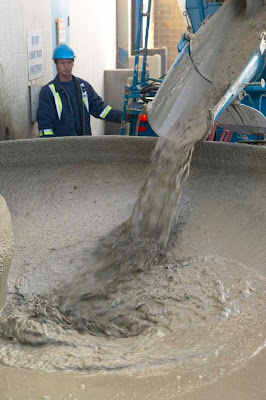Properties of Hardened Concrete
The properties of hardened concrete that are of interests are:
- permeability
- frost resistance
- resistance to abrasion
- strength
Among the above properties, strength is the most important single property, since the first (and most important) consideration in structural design is that the structural members nust be capable of carrying the imposed loads.
Permeability
Concrete which is made with low water/cement ratio and well-compacted has good resistance to the absorption of water, i.e. low permeability. A concrete that is low in permeability has high durability.
Frost resistance
Concrete can be damaged by expansion of ice crystals (in cold weather) form in capillary pores or cracks. Air-entrainment admixtures form discontinuous minute bubbles which improve resistance to frost.
Resistance to abrasion
Depends upon the hardness of the aggregate particles and the ability of the mortar matrix to retain them (i.e. minimal bleeding).
Strength of hardened concrete
As mentioned earlier, strength is the most important single property. Strength of concrete can be compressive or tensile.
Cracking (failure) pattern in normal strength concrete (see Fig 20.5)
Necessary to understand the cracking pattern
Factors influencing strength of concrete
What are the factors influencing strength of concrete?
- Water/cement ratio
- Effect of age
- Temperature during hydration
- Humidity during curing
- Aggregate properties









0 comments:
Post a Comment